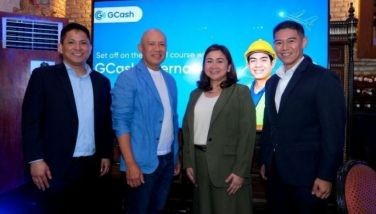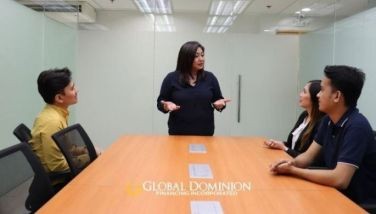Unlocking power of data for sustainable development

MANILA, Philippines — Data has become the new life force that drives the world today. Businesses have always leveraged their company or customer information to make better, smarter, real time, fact-based decisions – from developing a new product, moving into a new market or simply redefining an old process.
New technologies, an increasing number of connected devices, combined with better data collection tools and processes are leading to an exponential increase in the volume and types of data available. Researchers around the world are in broad agreement that the size of the digital universe will double every two years at least, resulting in a 50-fold growth in this decade.
Machine data is growing even more rapidly, at 50 times the growth rate.
This data revolution is creating unprecedented possibilities, not only for businesses, but also for governments and the public sector to inform and transform the society, while driving positive social impact outcomes.
As the region strives to meet the United National Sustainable Development Goals (UN SDGs), there is an urgent need to leverage data and analytics to unlock insight that will enable governments to design impactful, innovative solutions to societal problems.
The Association of Southeast Asian Nations (ASEAN) is facing the same challenges posed by the data revolution and the advent of the fourth industrial revolution as the rest of the world. A rapidly changing work environment demands that our youth to be equipped with the skills they need to thrive in the new digital economy.
The region forms the world’s third largest workforce – behind only China and India – and the youngest. More than half of ASEAN’s population is under 30 years old. While Singapore performed well in the Asian Digital Transformation Index by The Economist Intelligence Unit (EIU), Southeast Asia, as a region, lags behind when it comes to digital infrastructure, and, in particular, human capital. The ASEAN ICT Masterplan (AIM) 2020 acknowledges the need to strengthen the digital workforce as it outlines recommendations to propel the region towards secure, sustainable, and digitally-enabled economy.
However, it is not just about equipping youth with the necessary digital skills for tomorrow, but also about enabling them to design impactful, innovative solutions to societal problems. ASEAN will need to tap on all its stakeholders – public and private sectors, academia, and civil society – in order to overcome these foundational challenges.
Partnership for sustainable development
The inaugural data analytics competition ASEAN Data Science Explorers (ADSE) not only taught youth essential digital skills in harnessing the power of data but also encouraged them to focus on issues in ASEAN across six UN SDGs, namely: good health and well-being, quality education, gender equality, clean water and sanitation, decent work and economic growth and sustainable cities and communities.
The ASEAN Foundation worked closely with businesses governments, community groups and teachers in this endeavour. Attracting 804 participants from 112 institutions across all 10 ASEAN member states, students presented practical ideas that could contribute to the achievement of the ASEAN Socio-Cultural Community Blueprint 2025. Students were also trained in analytics software through webinars and in-country seminars providing them with essential digital skills they need to tackle society’s problems and thrive in the digital economy.
Filipino students sought to use digital technologies, particularly analytics, to achieve safe, inclusive, and sustainable cities for ASEAN countries. Indonesian students, on the other hand, proposed to accelerate financial inclusion through branchless banking as a means to eradicate poverty. Since agriculture continues to play a big part in the Laotian economy, students participants suggested the adoption of smart and vertical farming to improve productivity. These solutions could easily be adapted throughout the ASEAN, collectively enabling the region forward.
With Singapore taking the ASEAN chairmanship next year, the focus is already squarely on raising the bar for digital initiatives across the region. The ASEAN Data Science Explorers program will continue to support ASEAN’s efforts to harness digital technologies to secure a better future by encouraging digital literacy among our youths, dovetailing with the theme of the chairmanship – resilience and innovation.
Collectively honing our digital prowess will allow for a fast-evolving and successful global economy where the youth, in particular, will be well prepared to tackle what lies ahead. — Claus Andresen is the president and managing director of SAP Southeast Asia
- Latest






























